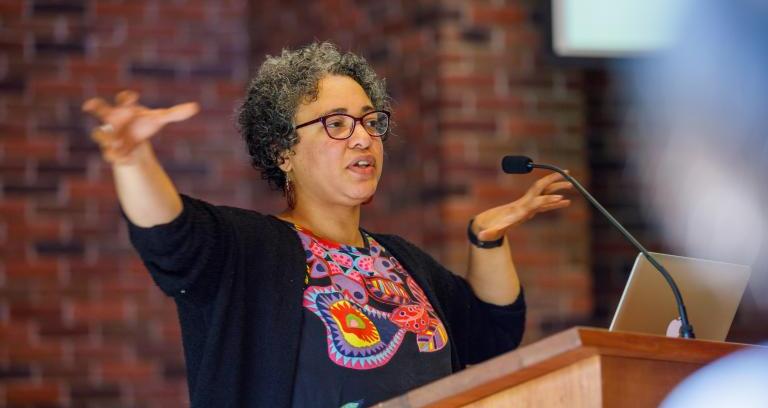“Are you sure you belong on the evangelical channel?” the Patheos director of content asked me over the phone. It’s a fair question.
A couple months ago over breakfast a pastor friend from my evangelical denomination expressed his concern with what he called my “Mennonitism.” He seemed to think Anabaptist theology is incompatible with evangelicalism and to equate Anabaptism with liberalism.

The irony is that the denomination in which we both pastor was started by Mennonites who had been kicked out of the Mennonite church for their progressive methods and ideals—like singing four-part harmony, holding tent revivals, and embracing women in leadership.
The suspicion can run both ways. Last fall evangelical historian John Fea spoke at Anabaptist Mennonite Biblical Seminary (AMBS, the seminary where I work) and was told in no uncertain terms by one Mennonite theologian in attendance that evangelical theology is itself responsible for the violence and racism prevalent in American society. After the interaction Fea wrote that he “realized that Anabaptism and Evangelicalism are quite different, especially when it comes to the theology of the atonement and the role that doctrine plays in Christian identity.”
Such supposed theological tension between evangelicalism and Anabaptism was even cited in Mennonite World Review as a reason Greg Boyd and company were recently removed as adjunct professors by Fresno Pacific University. In that case, though, Boyd is an evangelical pastor who’s been drawn to Anabaptist theology, and Fresno Pacific is affiliated with the Mennonite Brethren denomination, which has been influenced by evangelical theology. So it’s difficult to draw the line of demarcation between Fresno and Boyd as one between evangelicalism and Anabaptism. Who would represent each side?
A few years ago my friend Jared Burkholder and I edited a book, The Activist Impulse: Essays on the Intersection of Evangelicalism and Anabaptism, in which a number of historians and theologians explore the question of the compatibility of evangelicalism and Anabaptism. As good historians and theologians, our conclusion is: It’s complicated.
One of the contributors to the book, Tim Erdel (affectionately known by his students as “Brother Tim”), elsewhere wrote an article on the evangelical tradition in which he offers the most comprehensive definition of evangelicalism I’ve ever read. Erdel describes seven different historic definitions of “evangelical”—from the New Testament times to the twenty-first century—another nine contemporary definitions, a theological definition, and a couple sociological definitions to boot.
In light of Erdel’s article, my answer to the Patheos director about whether this blog belongs on this channel is: It depends.
It depends on how you define evangelical—and Anabaptist for that matter, but since this blog is devoted to unpacking Anabaptism, I’ll content myself for now with evangelicalism.
In the coming weeks, I’ll break down Erdel’s various definitions of “evangelical” to describe the ways it does (and the ways it doesn’t) apply to Anabaptists like me.











